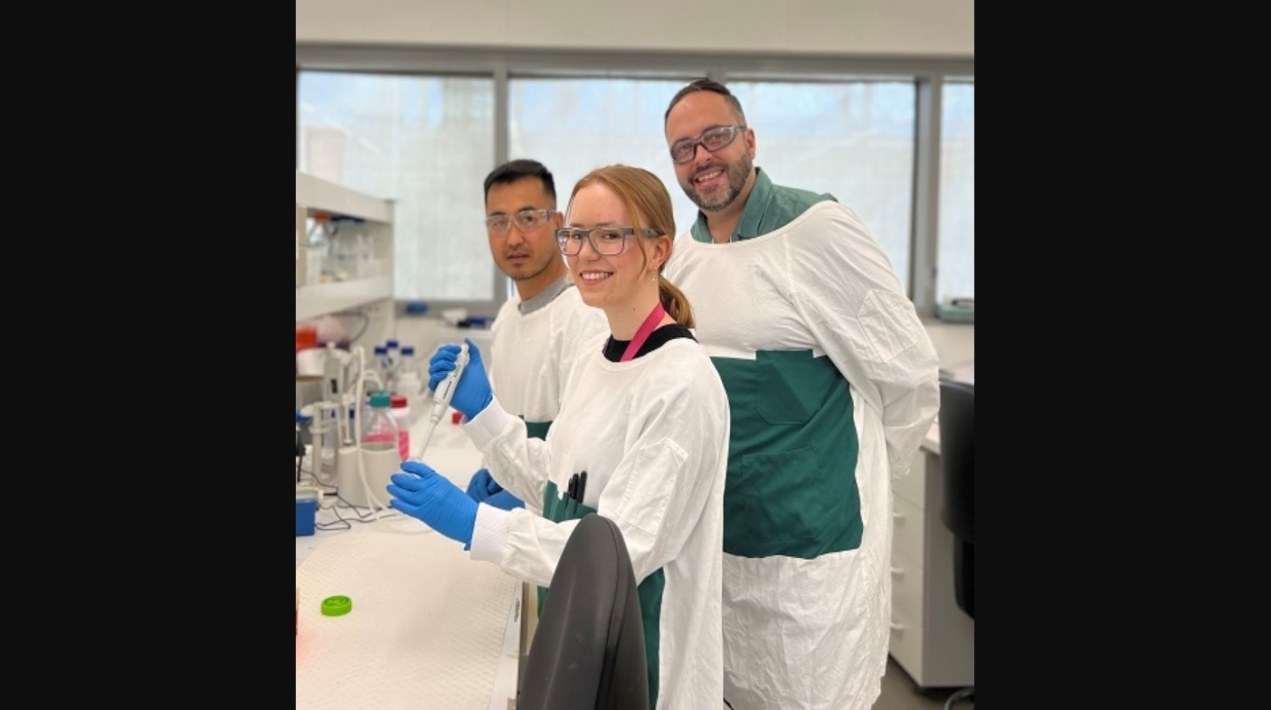
|
Getting your Trinity Audio player ready...
|
Researchers from the RMIT University and the University of South Australia (UniSA) have developed an ultrathin superbug-fighting material that could revolutionise wound care and implant technology by preventing and healing bacterial infections. This groundbreaking innovation, which has already undergone advanced pre-clinical trials, demonstrates remarkable effectiveness against drug-resistant bacterial cells, including the notorious “golden staph” superbugs.
Antibiotic resistance poses a significant global health threat, causing approximately 700,000 deaths annually. Without the development of new antibacterial therapies, this number could skyrocket to 10 million deaths per year by 2050. In response to this looming crisis, a joint effort led by RMIT University, and the University of South Australia (UniSA) has explored the potential of black phosphorus-based nanotechnology as an advanced treatment for infections and wound healing.
The results of this research, published in Advanced Therapeutics, reveal that this nanotechnology can effectively treat infections by eliminating over 99% of bacteria without harming other cells in biological models. The treatment’s efficacy is comparable to that of traditional antibiotics, leading to accelerated healing, with wounds closing by 80% within just seven days.
What sets this superbug-killing nanotechnology apart is its versatility. RMIT University has sought patent protection for black phosphorus flakes, which can be integrated into a wide range of materials, including gels, plastics, and medical device components. This innovation isn’t just a simple coating; it becomes an integral part of these materials, rendering them antimicrobial.
Professor Sumeet Walia, co-lead researcher from RMIT, highlights the unique aspect of their invention. It doesn’t merely provide a protective coating; it integrates seamlessly into common materials used in medical devices and wound dressings. This integration ensures rapid antimicrobial action, followed by self-decomposition once the threat of infection has been eliminated.
The effectiveness of black phosphorus in killing microbes was initially discovered in a previous study led by RMIT. It was found to be particularly effective when applied in nano-thin layers on surfaces used for wound dressings and implants, such as cotton, titanium, and medical-grade plastics.
The science behind this invention revolves around black phosphorus, the most stable form of phosphorus. In its ultra-thin form, black phosphorus readily degrades in the presence of oxygen, making it an ideal candidate for microbial control.
Professor Walia explained the mechanism and said that as the nanomaterial undergoes degradation, its surface interacts with the surrounding atmosphere, leading to the generation of substances known as reactive oxygen species. These compounds play a crucial role in dismantling bacterial cells.
In their recent study, the researchers tested nano-thin flakes of black phosphorus against five common bacterial strains, including E. coli and drug-resistant golden staph. Their antimicrobial nanotechnology proved highly effective, swiftly annihilating more than 99% of bacterial cells, surpassing the performance of many existing infection treatments.
Dr. Aaron Elbourne, co-lead researcher from RMIT, underscores the urgency of developing new treatments to combat antibiotic resistance. Superbugs, which are bacteria resistant to antibiotics, pose significant health challenges globally, and as drug resistance grows, treating these infections becomes increasingly difficult.
In preclinical trials conducted by the team at UniSA, lead researcher Dr. Zlatko Kopecki demonstrated the effectiveness of daily topical application of black phosphorus nanoflakes in reducing infection. This treatment proved comparable to ciprofloxacin, a common antibiotic, in eradicating wound infections and accelerating healing. Wounds closed by an impressive 80% within just seven days.
Dr. Kopecki, a Channel 7 Children’s Research Foundation Fellow in Childhood Wound Infections, highlights the scarcity of antibiotic treatments and the urgent need for alternative approaches to manage wound infections. He believes that black phosphorus has the potential to revolutionise the treatment of chronic wounds.
The research team is eager to collaborate with potential industry partners to further develop and prototype this groundbreaking technology. In the face of escalating antibiotic resistance, their innovation holds promise as a powerful weapon in the global battle against superbugs.
















